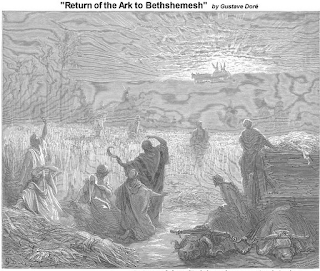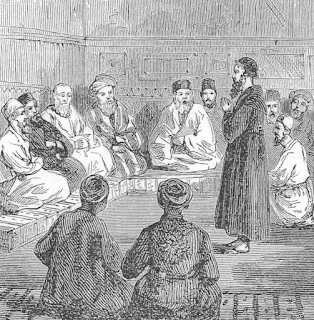TO CHEW ON: "But beware lest somehow this liberty of yours become a stumbling block to those who are weak." 1 Corinthians 8:9
Are you aware of your conscience? We all have one, you know, though this part of our consciousness gets little attention in the secular world. However, writer Joe Carter believes the conscience is making a comeback among Christians. In an article on The Gospel Coalition, he describes what the conscience is and isn't, does and doesn't do for us. He makes these points:
1. Conscience is an internal rational capacity that bears witness to our value system.He likens a bothered conscience to physical pain, alerting us to the fact that we've done something we consider wrong.
2. Conscience is a trustworthy guide only when it is informed and ruled by God.
3. Conscience is to be subordinated to and informed by the revealed Word of God.
4. To willfully act against conscience is always a sin.
5. Conscience can be suppressed by sin.
Paul here is going one further, telling his readers not to merely follow their own consciences (he assumes they already do) but to alter their behavior so as not to offend the conscience of a more sensitive brother or sister.
And why would they do that?
Out of genuine care for that more sensitive Christian, realizing that when they indulge their greater freedom, their example may encourage the person with the sensitive conscience to join in the activity and thus go against his conscience and thus sin (1 Corinthians 8:9).
The example Paul uses—eating meat offered to idols—will hardly apply to us. But many modern behaviors could. For example, if your conscience allows you to drink alcohol in moderation, would you refrain from drinking it if you were with someone who had scruples against drinking alcohol?
Jim Cymbala in the book Storm makes an impassioned plea for this kind of consideration of others exactly in this area. His dad, who was an alcoholic, didn't even attend his wedding. Cymbala says:
"That's what I always think about when I hear people flaunting their so-called 'freedom in Christ' or their enlightened view of twenty-first century ethics. One drink at one party did my dad in. And I don't know what weakness lies resident in me. That's why I forgo anything with alcohol content. Not because wine with a meal is wrong, but rather who knows where that drink might lead me? Or someone who watches me drink it? ... Can't we all, regardless of our differing views on what's 'lawful,' put other people's welfare first?" - Jim Cymbala, Storm, Kindle Location 1576.
PRAYER: Dear God, please help me to put into practice the principle of caring as much about others and their spiritual welfare as I care about my own. Amen.
PSALM TO PRAY: Psalm 144
*********
Unless otherwise noted all Scripture quotations are taken from the New King James Version®. Copyright © 1982 by Thomas Nelson, Inc. Used by permission. All rights reserved.



















